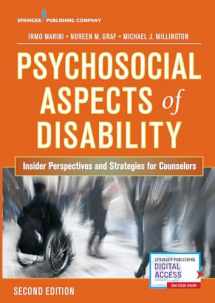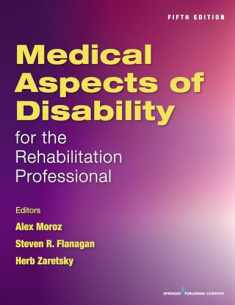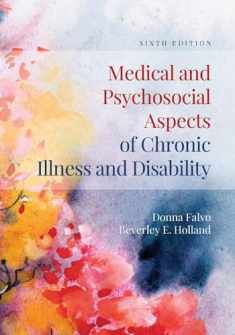
Psychosocial Aspects of Disability: Insider Perspectives and Strategies for Counselors
Book details
Summary
Description
What are the differences between individuals with disabilities who flourish and those who never really adjust after a trauma? How do those born with a disability differ from individuals who acquire one later in life? Fully updated and revised, this second edition of a unique rehabilitation counseling text reflects growing disparities among “haves” and “have-nots” as they bear on the psychosocial aspects of disability. New content focuses on returning veterans afflicted with physical and mental health problems, persons with disabilities living in poverty, and the need for increased family and community-based engagement. The book provides updated information about assisted suicide, genetic testing, new legislation, and much more.
Using a minority model perspective, the text provides students and practitioners of rehabilitation and mental health counseling with vivid insight into the experience of living with a disability. It features first-person narratives from people living with a variety of disabling conditions, which are integrated with sociological and societal perspectives toward disability, and strategies for counseling such individuals. The text encompasses a historical perspective, psychological and sociological research, cultural variants regarding disability, myths and misconceptions, the attitudes of special interest and occupational groups, the use of positive psychology, and adjustments to disability by the individual and family. A wealth of counseling guidelines and useful strategies is geared to individuals with specific disabilities. Designed for a 15-week semester, the book also includes thought-provoking discussion questions and exercises.
New to the Second Edition:
- Reflects the growing disparities between “haves” and “have-nots” as they impact people with disabilities
- Includes new content on veterans with physical and mental disabilities
- Describes the experience of impoverished individuals with disabilities
- Examines the need for increased family and community-based engagement
- Discusses strengths and weaknesses of the Americans With Disabilities Act
- Covers assisted suicide, genetic testing, and recent legislation
- Includes expanded coverage of sexual identity
- Provides an Instructor’s Manual and PowerPoints as supplemental downloads
Key Features:
- Provides 16 personal narratives demonstrating the “normalcy” of individuals with different types of disabling conditions
- Includes stories of people living with blindness, hearing impairments, spinal cord injuries, muscular dystrophy, mental illness, and other disabilities
- Delivers counseling strategies geared toward specific disabilities, with “do’s” and “don’ts”
- Discusses ongoing treatment issues and ethical dilemmas for rehabilitation counselors


We would LOVE it if you could help us and other readers by reviewing the book
Book review





